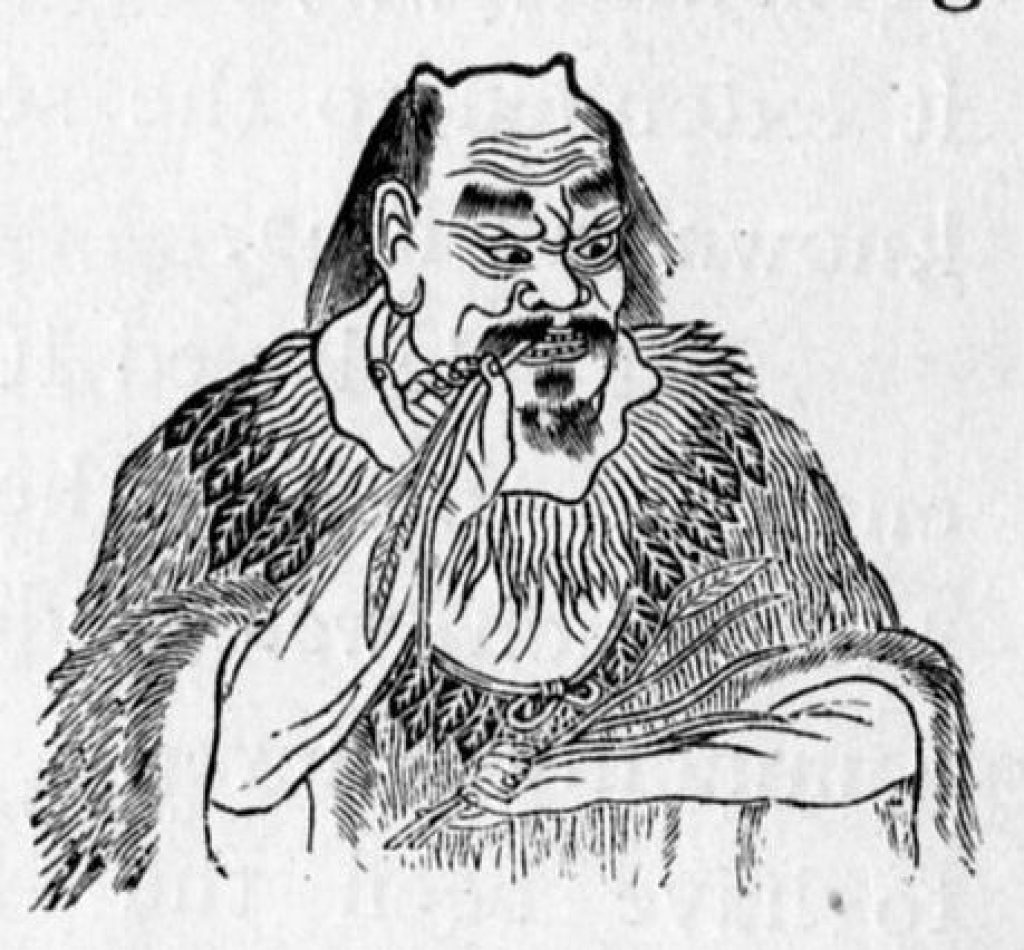Emperor Shennong (Chinese: 神农), who’s name literally means “Divine Farmer”, is a central figure in Chinese mythology and a revered ancestor of the Han Chinese people. According to legend, Shennong was a wise and just ruler who lived approximately 5,000 years ago during the early days of Chinese civilization. He is credited with a number of important inventions and discoveries, including the plow, the Chinese calendar, agricultural irrigation, but perhaps his most enduring legacy is his role in the discovery and cultivation of tea.
The Legend of Emperor Shennong and the Discovery of Tea
A popular version of this legend states that one autumn afternoon, Shennong was resting under a Camellia tree. He decided to boil water for drinking. As he did so, dried leaves from the tree drifted into his pot of boiling water, infusing it and creating the first-ever tea. Captivated by its enticing aroma, Shennong tasted the infusion and was pleasantly surprised by its flavor.
Regardless of whether this story actually happened, the discovery of tea is widely attributed to Emperor Shennong in Chinese culture.
The Spread of Tea Culture in China
After the discovery of tea, it gradually became popular as a beverage throughout China. At first, it was primarily consumed for its invigorating properties, but over time it also came to be appreciated for its taste and the social occasions it facilitated. Tea became a common part of daily life in ancient China, enjoyed by people from all walks of life, and it played a central role in many cultural and religious rituals.
The cultivation of tea also played a significant role in the development of Chinese agriculture and trade. Tea plants were initially grown in small plots in the mountains, but as demand for the beverage increased, it became a major commodity and began being grown on large plantations. Tea was also widely exported to other countries, and it played a key role in the development of the Silk Road and other trade routes throughout Asia.

